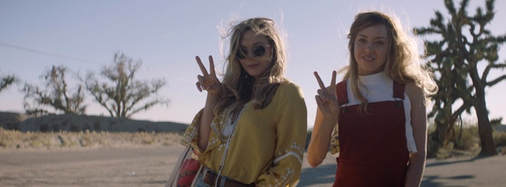It is only the celebrity stalkers that make it into the news, so we never really hear about all of the other stalking that goes on around us everyday. Turns out, that the real life everyday stalkers are actually very common and according to the National Centre for Victims of Crime statistics, one in 45 men and one in 12 women will be stalked by someone during their lifetime. How creepy is that? I bet you didn't know that there were that many people out in the world with stalker-ish qualities. I have to admit that I was pretty surprised when I read the statistics myself. So, obviously I wanted to know more about stalking, like why does a person stalk and how can you spot stalker behaviour before it gets out of control?
From what I have read, a stalker's main objective is to induce fear which they try to incite through methods of harassment and intimidation. The official definition of a stalker is anyone that creates unwanted contact between two people that directly or indirectly communicates a threat or places the victim in fear, which means that stalkers can be intentional or unintentional in their actions. 75% of all stalkers personally know their victims, so if you do find yourself being stalked, odds are that you will know the perpetrator.
Here are the seven types of stalkers to watch out for:
Domestic: A former spouse or paramour. This is the most prevalent type of stalking and can often manifest in the workplace. It also has the highest incident of putting innocent bystanders at risk.
Lust: A serial predator that stalks victim after victim. Serial rapists and murderers often begin as lust stalkers.
Love-Scorned: An acquaintance, coworker, neighbour etc. that desires an intimate relationship with the victim but is rebuffed.
Celebrity: Famous people stalker, aka. obsessive stranger.
Political: A person who's stalking is motivated by their political beliefs.
Hit: A person hired to stalk and murder a person.
Revenge: An angry, aggrieved, resentful and vindictive person that is seeking payback.
Unfortunately, there is no reliable profile to predict who is likely to stalk. Some patterns have begun to emerge from research, and although these fall short of providing a reliable or conclusive checklist, what has been discovered so far is interesting to say the least. Clinical studies have discovered that a large percentage of stalkers are:
- Unemployed or under-employed
- In their late 30's to late 40's
- High school and/or college graduates
- More intelligent than other forms of criminals
- Mostly male
- Often delusional
- Sometimes narcissistic
- Usually antisocial
Some potentially stalking behaviours to pay attention to would include:
- Someone who has an unnecessary need to contact you but still does, their contact levels will be persistent and incessant. They will use calls, text, emails or even visit in person more often than you feel comfortable with.
- Someone who seems clingy or keeps tabs on your goings on. They will always enquire about who you spend time with, where you are going and the details of your future plans.
- Someone who knows more about you than you have told them. This means that they have enquired about you to other people or researched you through the people you know and your online profiles.
- Someone who is socially awkward, says inappropriate things in large groups of people or is rude or mean to your friends. Many stalkers have these social traits.
- Someone who cannot respect your personal boundaries and tries to contact you at inappropriate times, even after you've asked them not to.
- Someone who drops in unannounced and hangs around when you don't want them to.
- Someone that becomes aggressive, annoyed or intimidating when you try to set up personal boundaries or if you decline an invitation that they have initiated.
- Someone that has left signs that they have been to your home, near your car, at your place of employment or on your social media accounts when you have not been there yourself.
Remember that stalkers are not emotionally stable people, and therefore you cannot rely on them to make the right decisions, so always protect yourself first and never approach them alone. Hopefully, you will never need to employ any of this information, but with many things of an insidious nature, prevention and early detection can be key. So, don't feel like you ever need to put up with being intimidated by someone who attempts to gain your attention and friendship through means of fear, harassment and aggression becasue that's called stalking and it's illegal.

Release Date: 2017
Rating: MA 15+
Running Time: 98 mins
A black comedy/drama directed by Matt Spicer and written by Spicer and David Branson Smith that premiered at the 2017 Sundance Film Festival where it won the Waldo Salt Screenwriting Award. Ingrid Goes West is a smart and satirical look into the vapidity of social media and the deeply disturbing social problems that have developed as a consequence of everyone's obsession with it, making this film as concerning as it is enjoyable.
Ingrid (Aubrey Plaza) has a history of mental illness and social media stalking. She discovers Taylor (Elizabeth Olsen) on instagram and instantly becomes obsessed with her boho chic lifestyle, which prompts her to move to LA in an effort to insinuate herself into Taylor's life.
Aubrey Plaza is dynamite as unstable Ingrid, and Elizabeth Olsen is perfectly cast as the vacuous Instagram junkie Taylor. This is a really watchable and modern take on the Single White Female stalker/thriller trope that will definitely leave you questioning how much you post on social media in the future.
FINAL SAY: #iamingrid
4 Chilli Peppers

 RSS Feed
RSS Feed